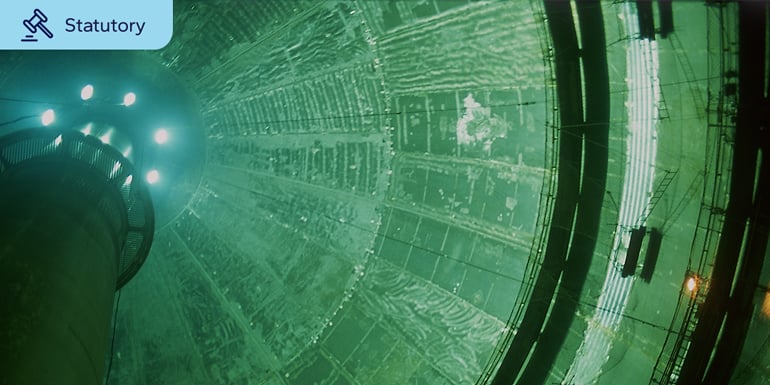IMO CCC 11: Interim guidelines for hydrogen as fuel completed
The 11th session of the IMO Sub-Committee on Carriage of Cargoes and Containers (CCC 11) was held from 8 to 12 September 2025. CCC 11 finalized interim guidelines for the use of hydrogen as fuel, interim guidelines for the use of ammonia cargo as fuel, and interim recommendations for the carriage of liquefied hydrogen in bulk. CCC 11 also agreed on a working plan addressing loss of containers at sea.
Information for: Ship owners and managers, fuel and cargo tank manufacturers and yards.

Meeting highlights
- Finalized interim guidelines for the use of hydrogen as fuel
- Revised the working plan for the development of new alternative fuels under the IGF Code
- Finalized amendments to the IGC Code
- Finalized interim guidelines for the use of ammonia cargo as fuel
- Finalized draft amendments to the revised interim recommendations for the carriage of liquefied hydrogen in bulk
- Worked on amendments to the IMSBC and IMDG Codes
- Agreed on a working plan to address the loss of containers at sea
Amendments to the IGF Code and the development of guidelines for alternative fuels and related technologies
CCC 11 finalized interim guidelines for the safety of ships using hydrogen as fuel, further developing and describing the established design principles and functional requirements.
The guidelines include functional requirements and detailed provisions for all 20 chapters. The guidelines are limited to liquefied hydrogen concepts, as well as portable compressed and fixed compressed hydrogen concepts, all of which should be fitted on open deck.
Due to time constraints, no discussion took place on other guidelines such as the guidelines for the use of oil fuels with a flashpoint between 52°C and 60°C as fuel, the revision of the guidelines for methyl/ethyl alcohol as fuel, and the revision of the fuel cell guidelines. Work on these guidelines will continue in a Correspondence Group and an intersessional Working Group, both reporting to CCC 12 in 2026.
CCC 11 updated its existing working plan for the development of new alternative fuels under the IGF Code, with the following items assigned as high priority:
- Revision of the interim guidelines for the safety of ships using methyl/ethyl alcohol as fuel (approval expected 2027)
- Revision of the interim guidelines for the safety of ships using fuel cell power installations (approval expected 2028)
- Development of the interim guidelines for the safety of ships using onboard carbon capture and storage systems (approval expected 2029)
IGC Code amendments
CCC 11 finalized the draft amendments to the IGC Code, concluding on implementation dates for new requirements. The draft amendments are expected to be approved by MSC 111 in May 2026, aiming for adoption at MSC 112 at the end of 2026 and entry into force on 1 July 2028.
Guidelines for the use of ammonia cargo as fuel
CCC 11 finalized interim guidelines for use of ammonia cargo as fuel on gas carriers. This provides guidance to ensure the safe handling of ammonia as fuel, with a main focus on issues outside cargo areas to ensure safety for the crew and ship.
Revision of the interim recommendations for the carriage of liquefied hydrogen in bulk
CCC 11 finalized a revision of the interim recommendations for the carriage of liquefied hydrogen in bulk (Resolution MSC.565(108)), adding a new Part D on cargo containment systems of a membrane-type cargo tank maintaining the insulation spaces under vacuum.
CCC 11 also recommended that member states submit a new output proposal on the requirements on training for the carriage of liquefied hydrogen in bulk.
Harmonized performance standard for lashing software
CCC 11 advanced work on a performance standard for lashing software. This work will be continued in a Correspondence Group to prepare a final draft for consideration at CCC 12 in 2026.
Measures to prevent the loss of containers at sea
CCC 11 prepared a working plan for progressing measures to prevent the loss of containers, grouped into five main topics:
- Operational guidance and limitations
- Conditions at sea
- Loading, stowage, validation and planning
- Calculation technical standards and container securing gear properties and related inspection programmes
- Container properties and related inspection programmes
Interested parties are invited to prepare new output proposals on the topics identified in the working plan.
Amendments to the IMSBC Code and supplements
CCC 11 discussed matters related to fumigated cargo holds and agreed that a new output on the safe use of pesticides and fumigation practices in cargo holds is needed, considering key areas for improvement such as continuous gas detection and enhanced risk controls during pre-loading inspections.
The following topics were discussed and forwarded to Editorial and Technical Group (E&T 44), to be held in spring 2026, for discussion and incorporation into the draft amendment 09-27 of the IMSBC Code:
- New individual cargo schedules for bituminous granulates coarse, bituminous granulates fine, calcium carbonate/lime mud, mullite and kaolinite
The 09-27 amendment to the IMSBC Code is expected to be adopted by MSC 113 in 2027.
The following topics were discussed and forwarded to
E&T 44 for consideration and to provide advice to CCC 12:
- Carriage of contaminated soil PFAS in bulk
- Publication of solid bulk cargo not listed in the IMSBC Code, but shipped based on provisional assessments in GISIS
Amendments to the IMDG Code and supplements
CCC 11 discussed improvements of stowage provisions for vehicles and forwarded the topic to E&T 43, to be held directly after CCC 11, for discussion and incorporation into the draft amendment 43-26 of the IMDG Code, with a view to adoption at MSC 111 in May 2026.
The following topics were discussed and forwarded to E&T 43 for consideration and to provide advice to CCC 12:
- Amendments to table 7.1.4.5.18 (segregation distances between radioactive material and passengers and crew) of the IMDG Code
- Classification of diesel fuel when part of a multimodal transport chain
- Indication of the control temperature of flammable liquids having a flashpoint less than 23°C in a non-explosion-proof refrigerating system in the transport document
Unified Interpretations (UIs)
CCC 11 agreed to a revised UI of paragraphs 4.4.1, 4.5, 4.6.2.1 and 4.6.2.4 of the IGC Code and paragraphs 4.7.1, 4.7.3, 4.7.4.1 and 4.7.7 of the IGC Code related to the secondary barrier testing and effectiveness assessment, opening up the possibility for new evaluation of secondary barrier findings. The UI will be submitted to MSC 111 in May 2026 for approval.
CCC 11 noted the following UIs published by the International Association of Classification Societies (IACS):
- IACS Unified Interpretation GF 22 of paragraph 9.6.1 of the IGF Code to clarify the use of gas fuel vent pipes of single-walled constructions in machinery spaces
- IACS Unified Interpretation GF 21 of paragraph 11.7.1 of the interim guidelines for the safety of ships using methyl/ethyl alcohol as fuel (MSC.1/Circ.1621)
Recommendations
DNV recommends that customers note the finalization of interim guidelines for use of hydrogen as fuel, the updated working plan for the development of new alternative fuels under the IGF Code as well as the completed review of the IGC Code.
As CCC is a Sub-Committee, all decisions concerning rules, regulations and dates are subject to further consideration and approval by the Maritime Safety Committee (MSC).
